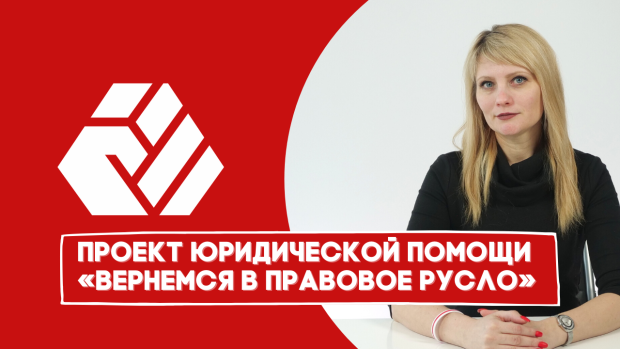Unfortunately, the detentions continue. And while some pretend that the country's situation is normal, others go to district marches and do not give up, despite the authorities' challenging position. It turns out that you can break something by clapping your hands, going out into the yard, or shopping in a store in clothes of political colors, apparently some new concept in jurisprudence, which is not fixed in any way in normative legal acts. But what can you think of to stay in the warm chair of the judge.
Today let's talk about the situation when retaining a relative or another close person.
First, search.
For the beginning, it is necessary to dial 102. Ask whether there is a person in their lists. Be sure to check with the employee on the line his surname, and more than once, so that he understands, you write down the one who helped you or did not help in your search.
If at 102, they said that they did not know where the person was, he could most often be found in the district police department at the place of detention. There are also telegram channels with lists withdrawal this "lists of Okrestina" and "Spring." These channels have chatbots, and you may publish information about the missing there. You must state the surname, first name, date of birth, and the prospected place of detention. It will easily search.
It is also possible to arrive at the nearest police station (RUVD). If the detentions are massive, then the lists have the volunteers who are on duty there. If not, then call the intercom, give the name and clarify. You will most likely be told if they have such a person. If a person was not released to the police station and he was not released after the protocol was drawn up, then before the trial, he would be transferred either to the IVS Zhodino or Okrestin street. Suppose you have not found a person on the lists. In that case, unfortunately, you need to call 103 or, in extreme cases, write a statement about the missing person.
Second, the court.
As a rule, it takes place on the next day after the arrest. The person is judged, except for Zhodino, in the same district court, which declared him RUVD. Look for information about the court on the above telegram channels' sites or at the stand in the courthouse.
It is advisable to be present at the meeting. This is moral support to the detainee. After the decision is made, you may not say how many days your relative has been convicted.
Third, transfer.
The man was detained and convicted. He needs a transmission. It can be passed on by a close relative (parents, children, spouses, siblings, and cousins). It would be best if you had a passport with you.
If a person vitally needs medicines, they can be brought and handed over from 8 am. For the transfer, you need a certificate or any paper from a doctor confirming the diagnosis. You can transfer a container for lenses and glasses for vision.
Anything that you give before being handed over to the arrested person is subject to inspection.
Each temporary detention center has its day for transmission. Because the transfer to places of detention has been banned at the moment, we can say that another sophisticated method of torture has appeared.
There are essential feminine hygiene products, the absence of which causes discomfort and serious health problems. This is due to a decrease in immunity and a high likelihood of infections entering the body. The deliberate undermining of women's health is another confirmation of the regime's cynicism.
I want to note that volunteers help to look for your loved ones. Among them, there are those on duty near the police station, go to courts, send transfers, and make lists. Please bring them tea and other necessary things. Come on, help and support each other. Long live Belarus!
You can fill out an application for legal assistance following the link.
Support HERE.
Today let's talk about the situation when retaining a relative or another close person.
First, search.
For the beginning, it is necessary to dial 102. Ask whether there is a person in their lists. Be sure to check with the employee on the line his surname, and more than once, so that he understands, you write down the one who helped you or did not help in your search.
If at 102, they said that they did not know where the person was, he could most often be found in the district police department at the place of detention. There are also telegram channels with lists withdrawal this "lists of Okrestina" and "Spring." These channels have chatbots, and you may publish information about the missing there. You must state the surname, first name, date of birth, and the prospected place of detention. It will easily search.
It is also possible to arrive at the nearest police station (RUVD). If the detentions are massive, then the lists have the volunteers who are on duty there. If not, then call the intercom, give the name and clarify. You will most likely be told if they have such a person. If a person was not released to the police station and he was not released after the protocol was drawn up, then before the trial, he would be transferred either to the IVS Zhodino or Okrestin street. Suppose you have not found a person on the lists. In that case, unfortunately, you need to call 103 or, in extreme cases, write a statement about the missing person.
Second, the court.
As a rule, it takes place on the next day after the arrest. The person is judged, except for Zhodino, in the same district court, which declared him RUVD. Look for information about the court on the above telegram channels' sites or at the stand in the courthouse.
It is advisable to be present at the meeting. This is moral support to the detainee. After the decision is made, you may not say how many days your relative has been convicted.
Third, transfer.
The man was detained and convicted. He needs a transmission. It can be passed on by a close relative (parents, children, spouses, siblings, and cousins). It would be best if you had a passport with you.
If a person vitally needs medicines, they can be brought and handed over from 8 am. For the transfer, you need a certificate or any paper from a doctor confirming the diagnosis. You can transfer a container for lenses and glasses for vision.
Anything that you give before being handed over to the arrested person is subject to inspection.
Each temporary detention center has its day for transmission. Because the transfer to places of detention has been banned at the moment, we can say that another sophisticated method of torture has appeared.
There are essential feminine hygiene products, the absence of which causes discomfort and serious health problems. This is due to a decrease in immunity and a high likelihood of infections entering the body. The deliberate undermining of women's health is another confirmation of the regime's cynicism.
I want to note that volunteers help to look for your loved ones. Among them, there are those on duty near the police station, go to courts, send transfers, and make lists. Please bring them tea and other necessary things. Come on, help and support each other. Long live Belarus!
You can fill out an application for legal assistance following the link.
Support HERE.


 Continue
Continue
